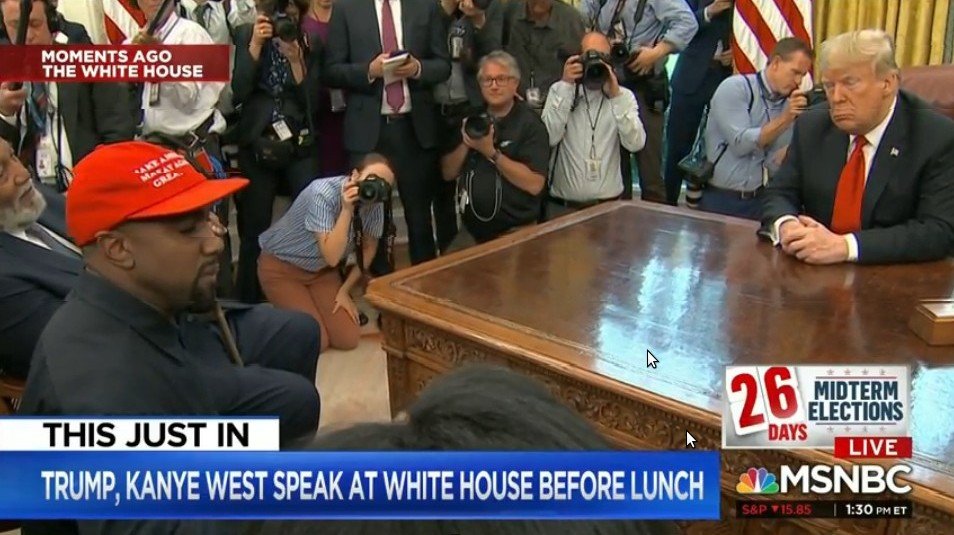How Mexico’s history could be the USA future
History has a nasty habit of repeating itself. And the current red flags in the USA have an eerie similarity to the build up to revolution in Mexico of the pre-1910 era. If you knew next week’s lottery numbers, you could be an instant multi-millionaire, so let’s use that trick to try and speculate on how things might go, and how you could play this to your advantage.
No one wants to see bloodshed, poverty, turmoil, pain & suffering that comes with transition in economics and politics in the world. Yet to pretend that these don’t exist is the easiest way to fall victim to them. At any one time, at least one country is undergoing some form of regime change that often is done with extreme bloodshed & loss of life. We must learn what causes this, and do what we can to avoid it for our own future. However if the levers of change are out of our reach, then it may be that we can’t do much to stop it and if those that have the power to enact change are asleep at the wheel or just avoiding that responsibility because it isn’t in their personal interest, the best thing we all can do is to have an escape plan and make sure we are outside of the blast range.

I’m sitting in a beautiful tranquil garden in the UNESCO heritage town of San Miguel de Allende, in Guanajuato State, in Mexico as I write this. I’ve just spent a week in Mexico City, and had the honor to have a couple of days with a retired professor of Anthropology tell us about Mexico’s history. It is a rich history with repeating regime change. From Mayan to Aztec, from Aztec to Spanish conquest, from Spanish to Mexican independence, and from totalitarian government to democracy. It seems that so many empires attempted to take over Mexico, and most failed. Although Mexico retained its sovereignty it lost so much in the process. Today the size of Mexico is a shadow of its former self, with so much of its land now being a part of the southwestern USA.
But what is most interesting is the period from around 1900. Not that long ago, really – just over 100 years. When we think of historical events of that period, we think mainly of World War One. “The war to end all wars” as they called it. But while the allied powers were fighting the Austro-Hungarian empire, we forget that the Mexico revolution that began in 1910 claimed over 1 million lives, and much of that within a short drive south of the US-Mexico border.
The leading indicators pre-revolution
In 1876, General Diaz seized power in a dubious "election", as the President of Mexico. He ruled Mexico with an iron fist. Diaz rose to power through the threat of force and remained in power for over 30 years. It is what he did just over 100 years ago that is most interesting, because we can see parallels in the state of affairs of the USA today and an eerie comparison with the lead up to revolution that overthrew Diaz, that began in 1910.
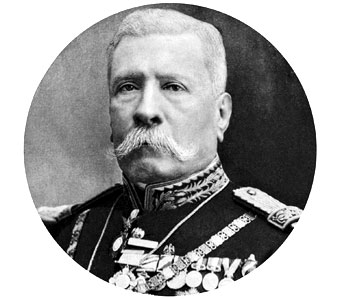
The most noticeable thing that occurred under General Diaz was a very wide gap between the rich and the poor. Under Diaz a vast number of the working and even middle class citizens of Mexico suffered. Poverty was rife and illiteracy was rampant. The general economy of the country was agriculture, so most of the population were farmers. They didn’t live in the cities, and they didn’t participate in the same economy that the wealthy classes did. The wealthy classes were the landowners and they benefited from tax policy under Diaz where a landowner paid far less in taxes than the local fruit vendor in Guanajuato City did.
There was no real path out of poverty. The working classes remained in that state and upward mobility was denied by government policy. The President meanwhile spent vast sums of money on infrastructure, including the building of large railroads and sea ports but they benefited the corporate landowners more than the workers. Products could be exported easily but the income from those exports rarely went back to the people. The 400 richest families in Mexico owned 99% of the country’s wealth.
It wasn’t necessarily that people were in poverty and starving. It was that the form of politics excluded the working and middle class from upward mobility.
Revolution
Then the people rose up and overthrew Diaz. This started with the agricultural workers under famous names such as Pancho Villa, Zapata, etc. who managed to create an insurgent army that took on Diaz and his generals. Over the period 1910 threough 1920, 1 million people lost their lives in the revolution and finally the insurgents prevailed. Diaz was thrown out of power, the revolution succeeded and installed their own President in office, and the people of Mexico were granted ownership of their own land.
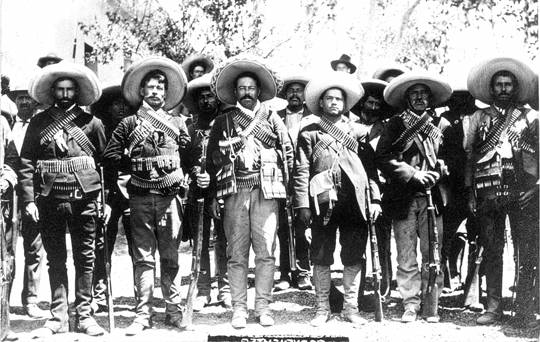
Today the laws in Mexico are strict in regards to landownership and respect this hard fought history. Foreign nationals cannot own land unless specific circumstances are presented, and the sovereign nature of Mexico is retained. Even 100 years later, the effect of that revolution still is felt even though the results of the revolution didn’t necessarily deliver anything better to the farm workers at all.
Sure, Mexico has some public services that are available to all citizens for either a very low price or free. Education & healthcare is pretty much available to all. But still so much of the society live in abject poverty and there is still a vast divide between the rich & the poor. Yet, at this point it doesn’t appear that a further revolution is in the future. The people appear happy and they are not excluded from upward mobility if they have taken advantage of education. There will always be those that don’t participate in economic mobility, but it doesn’t seem to be government that stops anyone who chooses to better themselves. Sure, there are problems with crime & corruption, but as I sit here writing this article, it isn’t a problem that is noticeable or prominent to my daily life.
Parallel indicators
Mexico has often been referred to as a “third world country”. However my own experiences would disagree with that. Although it isn’t a huge economic powerhouse here, it is a developing economy and doesn’t exhibit a lot of what the traditional definition of a third world country is.
I tried to research that. I remember decades ago reading that the economic definition of a third world country could be measured with the distance from the rich to the poor. The greater the wealth gap (ie. The 1% the own 85% of the wealth), meant that the rest of society scuffled over the crumbs that were left after the wealthy took their share. Of course it never is as easy as that. Today the definitions vary, but this article does a pretty good job to define it:
https://borgenproject.org/definition-of-a-third-world-country/
The particular paragraph here, is of most interest to me:
“These countries usually lack economic stability because of the lack of a functioning class system. Usually, the country will have an upper class and a lower class. Without a middle class to fill the gap, there is almost no way for a person to escape poverty because there is no next step for them on the economic ladder. This also allows the wealthy to control all the money in the country. This is detrimental to the economy of the country, and both increases and helps to sustain the poverty running rampant throughout the country while allowing the upper class to keep their wealth to themselves.”
Wasn’t this the exact situation prior to 1910 in Mexico that led to the revolution and 1 million people to lose their lives?
And isn’t this a risk to the daily life of any US citizen today?
The fact is that we have all become tired of hearing the phrase “the shrinking middle class” in America. The media throw this around like standard practice and its meaning is dulled. We all struggle for upward mobility, and although many achieve it, the majority do not. Sure, the rich do get richer – since 1980, the shareholders of US corporations have seen their wealth rise by a factor of 25x whereas the wage earners have only seen a 1.6x wage increase – barely keeping up with inflation.
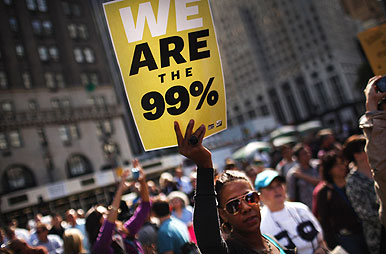
The cost of education and the use of the college system as a “permission slip” to enter the middle class is out of reach of most people, and the debt load incurred to pay for that entrance ticket means that most will spend the next 10 years of their lives paying that off, before they can actually participate in the economy of buying a house, raising a family, saving for their own retirement. The reliance on the youth to create the taxes to support the elderly is undermined so that the government cannot afford to honor its own obligations of social security & Medicare, with the media labelling them simply as “entitlements” like they were some evil or toxic obligation.
Mortality rates have risen, often due to drug overdose levels as the leading killer of under 50 year old males, exceeding car accidents, heart attacks, cancer, etc. as the leading cause of death. The statistical life expectancy rate of a US male has declined to 76.1 years, whereas other advanced societies have seen increases in longevity, mainly due to advances in technology. Simple infrastructural services such as public water is mismanaged creating toxicity in the water supplies of cities – most noteworthy being Flint, Michigan.
Even those that make it into the middle class are faced with rising costs of education, healthcare, housing, food, transport costs, etc. making it harder and harder to exist on anything less than a six figure income, particularly in the urban cities where the jobs are.
If you take all of this into consideration, and the banking cartel that run the Federal Reserve promoting debt as a way to avoid the financial losses of a failing company or country, the parallels between the leading indicators that led to social revolution in Mexico are so eerily similar to the indicators that each individual in the USA has to deal with on a daily basis today.
I’m not saying that revolution is imminent. I’m just saying that to deny the parallels is naïve at best.
Art tells a story
In Mexico, the history of the country was often written and told in murals by great artists. Much of this was popular because of the high rates of illiteracy and today artists like Diego Garcia and Frida Kahlo are legendary in the Mexican culture. I spent a bit of time traveling Mexico City and seeing with my own eyes the huge murals of Garcia, and toured the house of Frida Kahlo. They are incredibly beautiful things and something I would recommend to anyone that has the opportunity to visit Mexico City.
But there is a common message and theme that they captured. They were both devout communists. They embraced the teachings of Marxism and Lenin, and Frida Kahlo even had the soviet writer Tolstoy living in her house for a couple of years, before he left for his own dwelling nearby and was assassinated in the process.
The paintings that they did show clear messages of the downtrodden being discriminated against by the wealthy. While the poor were stomped on by the police, and died working in the factories, the rich got fat feasting on great food, wine and parties. They show this clearly, and the works of Garcia demonstrate this message in the Presidential Palace and the Palace of Fine Arts in Mexico City. They show images of Karl Marx, Lenin, etc. in the art as if this was an option.
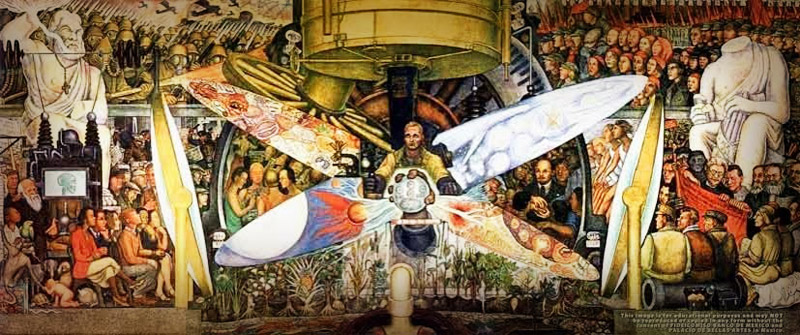
Fast forward to today – the current election cycle includes candidates from the left that clearly embrace many of the teachings of socialism. In fact many are proud to embrace socialism as a way forward and to reduce the gap between the rich and the poor. Of course history has taught us that countries that have embarked upon pure communism have failed. That human needs can never be suppressed – particularly the need to make money – and that only those countries that embraced capitalism somewhere in their own statist principals have flourished. Compare China with Cuba and the results speak for themselves.
But if we are to learn anything from history here by looking at the tales of art, we can clearly see that when a nation’s people feel constrained; feel that they have no upward mobility or that the costs of participation are too high, they go looking for ways to reduce that gap. Often the discussion of socialism starts and younger generations who cannot relate to the pain of wars of the past seem to think that it is a viable option. It is not.
The FI/FIRE movement is a revolution, but…
One interesting observation is that the current generation who are embracing financial independence are doing this against the general wishes of the state. By attempting to work hard early and save, to break free of the shackles of debt, they can exit the participation of the working class and regain their sovereignty. This is an admirable goal and something we support.
But if the rest of the society that doesn’t share that same strategy doesn’t join them, it won’t really matter. Macro issues that they can never escape run the risk of consuming their savings. It wasn’t that long ago that the country of Cyprus in the Mediterranean sea enacted a “Bail In” in which depositor’s money was seized to support the government debt. Interestingly the chairman of the Bank of Cyprus was Wilber Ross, the current Commerce secretary of the Trump Administration.

I mean imagine that…. You’ve been working tirelessly to save up for your own independence and one day you login to your bank’s website to check on your savings and you see it. Nothing. $0. Gone. Stolen from you. Where do you turn? Your police? Your government? Nope. They are the ones that took it.
Or that you have $1 million saved up and in equities, bonds, etc. under management. You feel that if you can just keep this up a little longer, you can retire early. Then you have a medical emergency and need surgery. And that because you quit your job, you lost your health insurance so you had to buy your own policy independently and it doesn’t cover your procedures. You are out of pocket $500K in medical costs for the adverse event. Then what? Or you go through a divorce and lose 50% of what you have saved and alimony & child support payments for the future. Is that financial independence?
Is there an answer to all of this?
Yes. Very simple. You need to be geographically diversified. I’m not talking about some investments that give you options to participate in international mutual funds or some bankster hoax like that. I’m talking about having multiple passports and a bug out strategy in case the SHTF. Because history tells us that it does. And the indicators that lead up to such instability, as what Mexico went through 100 years ago, should be closely watched and monitored.
Remember that those that see the threat coming ahead of time can get out of the way of it. And those that are truly enlightened know how to ride the threat like a bullrider – taming it to their own advantage. Look at people such as Doug Casey from Casey Research and read his story. He participated in the chaos of the collapse of the USSR and made millions from it. This story of transition is playing out in so many countries today and your own country could be one of them. You can be a victim to it, or you can be a winner. It is just how you see your own role for yourself and your family in the turmoil.

Many will tell you that it is unpatriotic to not try and participate in changing the dynamics of the country for the better, and that you owe it to your country. But you tell me just how you can do that in your lifetime? Do you join the military? That doesn’t work – just ask guys like Adam Kokesh, a marine veteran from Iraq who is now a candidate for president in 2020 for the Libertarian party, and an activist against unnecessary wars. His message of Freedom clearly explains why that is a really stupid idea.

At some point you have to ask yourself what is in the best interest of the sovereign country of YOU. Because you may need to move. And that maybe outside of the borders of your own country because it becomes just too toxic to exist there. Being unconstrained is a recognition that sometimes you have to do extreme things to avoid extreme situations and to take advantage of extreme gains.
Summary
So I leave you with this message. History has a nasty habit of repeating itself. Mexico could be the canary in the coal mine for the USA. It could be telling us to be careful with the wealth disparity between rich & poor. And that by excluding the citizenry from participation in the economy or upward mobility could be the key reason for revolution.
That extreme changes in government, particularly socialism and communism, isn’t the answer looking at history of the last 100 years. To embrace any political candidate that doesn’t realize this is like going from the frying pan into the fire. But neither is to support a regime that is only in it for themselves. More of the same is not helping.
Nothing in this world is perfect. But you have to keep a close watch on indicators, like the surfer surveys the horizon looking for the next great wave to ride, positions themselves and acts accordingly. Maybe you have to consider what happens if the SHTF and what you can do about it for you and your family? Don’t miss out on opportunities of course but remember that you have the responsibility of defending the sovereign country of YOU and you should first be patriotic to the sovereign country of YOU before you forego that to your country of birth or citizenship.
The best way you can protect yourself and thrive is to remove the obligation of debt from private parties, then to have a strategy of multiple passports and a “bug out” plan that you can enact. Consider it like most corporations have a Disaster Recovery Plan. They know that shit happens. They have a plan to deal with it when it does. Do you?









